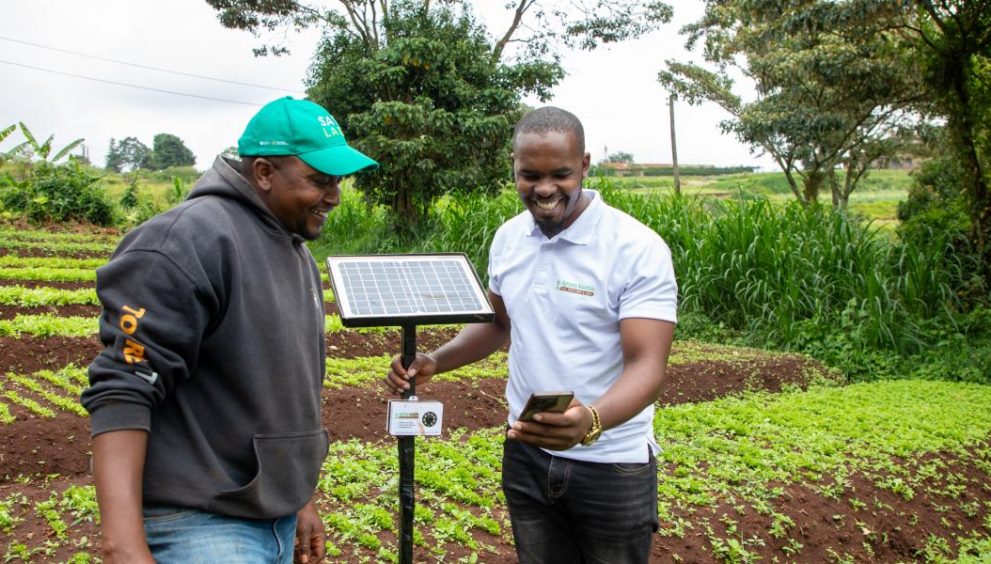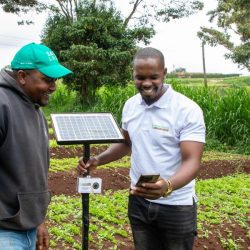Four years into the grand experiment of the African Continental Free Trade Area (AfCFTA), the chorus of voices celebrating its transformative potential for the continent’s economic fortunes and developmental goals remains strong. Yet, in that same period, the world has been battered by a relentless succession of crises, leaving no region untouched – least of all Africa, which continues to grapple with their lingering effects.
The stark reality of our climate emergency has already carved deep wounds into African economies, with the World Meteorological Organization estimating GDP losses ranging from a significant two to five per cent due to increasingly erratic weather patterns and devastating natural disasters. These climate shocks have also wreaked havoc on agricultural production, while the soaring food prices of recent years have starkly underscored the urgent need for Africa to add value to its raw commodities, dramatically increase trade within its own borders, and finally break free from its costly dependence on imported food.
From the initial seismic disruption of the COVID-19 pandemic to the recurring blows of climate-induced catastrophes and the unsettling outbreak and resurgence of conflicts across the globe, the global economic landscape remains precariously unstable. It is often the very small businesses, the entrepreneurial engines desperately needed to power global recovery, who find themselves bearing the heaviest burden.
Africa can ill afford to wait for a mythical return to calmer waters. The imperative is to urgently scale up efforts to forge robust regional value chains, demanding a significant surge in investment from both public and private sector actors. This is the only viable path to building genuine resilience and turning the tide against these persistent headwinds.
The encouraging news is that this is not a journey into the unknown. Strong frameworks are already in place, the multifaceted challenges are increasingly understood, and a tangible path forward exists to implement lasting solutions that actively promote value addition, reverse Africa’s long-declining terms of trade, and ultimately eliminate its debilitating commodity dependence.
The AfCFTA stands as a cornerstone of this ambition. Since the first trades took place, the agreement has steadily evolved, with negotiators successfully securing crucial protocols spanning areas from empowering women and youth to fostering the burgeoning digital trade landscape, ensuring fair competition, protecting intellectual property rights, and attracting the vital investment needed for growth.
Complementing this progress, strategic initiatives such as the AfCFTA Secretariat Private Sector Engagement Strategy have been meticulously developed to pinpoint the specific sectors holding the greatest promise for businesses both within Africa and internationally. This provides invaluable guidance for decision-makers and investors seeking clarity on where and when to strategically allocate their resources.
Furthermore, a wealth of surveys, comprehensive assessments, in-depth consultations, and extensive research are progressively illuminating the most effective pathways to fully realize the transformative promise of the agreement, with a particular focus on empowering Africa’s crucial small and medium-sized enterprises.
The potential rewards of a fully operational AfCFTA are nothing short of immense. Research conducted by the International Trade Centre (ITC), a collaborative agency of the United Nations and the World Trade Organization, has identified over 90 promising value chains, projecting a potential surge in trade within the African continent by a staggering $22 billion annually.
As Pamela Coke-Hamilton, the Executive Director of the International Trade Centre (ITC), has stated, “If fully implemented, the AfCFTA’s economic benefits would be immense: over 90 promising value chains have been identified, and trade within the African continent could grow by up to $22 billion per year.”
A significant portion of this currently untapped export potential lies within the agricultural sector and its associated commodities, particularly in areas such as cotton clothing and textiles, as well as oilseeds, fruits, nuts, and essential oils.
The stark reality is that, despite considerable efforts aimed at value chain development, low value-added products within these vital sectors are still too often exported outside the continent in their raw form, only for their higher-value finished counterparts to be imported back into Africa at significantly inflated prices.
Consider the glaring example of cotton: an astonishing 90 per cent of Africa’s raw cotton is shipped overseas to be processed into yarn, fabric, and apparel, only to be re-imported back into the continent where the necessary spinning mills and production facilities remain stubbornly scarce. This represents a colossal missed opportunity – the loss of potential for creating more and better-paying jobs, the failure to empower women employed in the sector with improved livelihoods, and a significant oversight in reducing the sector’s overall environmental footprint.
Greater and more strategic investments are urgently required in key economic sectors like agriculture, where this crucial value addition is so desperately needed. This necessitates not only direct financial investment but also a parallel and equally vital commitment to building the digital ecosystem that can underpin these value chains, making them resilient and fit for a world increasingly defined by crisis.
Smallholder farmers, the backbone of African agriculture, already face a formidable array of obstacles in their efforts to ascend the agricultural value chain. They are often hampered by a lack of access to the necessary finances to invest in essential agricultural inputs and crucial capital investments, including modern equipment, severely limiting their ability to build essential processing capacity.
Furthermore, they frequently struggle to navigate the complexities of identifying the most lucrative markets for their produce and understanding the often-daunting intricacies of export requirements. Information, in this context, is not merely data – it is power, and its absence leads to lost or, at best, deferred opportunities at a time when their realization is most critical.
Even when these fundamental elements are in place, the often-deficient state of logistics and transport infrastructure across the continent can severely impede efforts to efficiently get goods from farms to markets, stifling trade and hindering growth.
This is where the transformative power of digital solutions offers a crucial lifeline, capable of resolving or, at the very least, significantly mitigating many of these persistent challenges. And the timing for this digital intervention could not be more opportune.
Africa boasts the youngest population on the planet, with approximately one billion individuals under the age of 30 – a dynamic demographic poised to harness the transformative potential of digital technologies for business innovation. It is therefore imperative to ensure they are afforded every opportunity to spearhead the digital revolution within Africa’s agricultural sector, making it more sophisticated, modern, and, crucially, resilient in the face of ongoing global instability.
The AfCFTA Digital Trade Protocol is now a tangible reality, a comprehensive and forward-thinking framework designed to establish greater regulatory convergence and common digital standards across the diverse landscape of the continent.
Africa’s digital ecosystem is rapidly maturing, driven not only by established major corporations but also by a vibrant and increasingly influential cohort of smaller, agile digital startups. These innovative companies are becoming commonplace not just in established digital hubs like Egypt, Kenya, Nigeria, and South Africa, but also in rapidly emerging digital landscapes such as Ethiopia, Ghana, Senegal, and a host of other nations where these sectors are comparatively nascent.
This burgeoning digital ecosystem is not simply generating much-needed tech jobs in an increasingly competitive global market. Critically, it is also creating unprecedented opportunities for local agribusinesses to adopt technological solutions that can streamline every aspect of their operations, from upgrading fundamental production practices to meeting the increasingly stringent demands of supply chain traceability.
Innovative agritech companies are empowering agribusinesses by providing access to crucial digital advisory services, optimizing harvesting processes for greater efficiency and productivity while simultaneously driving down operational costs.
They are enabling the adoption of “smart farming” practices, where data-driven insights inform critical decisions on how farmers manage their fields, leading to more efficient resource utilization and higher yields.
Furthermore, they are simplifying the often-complex daily financial processes of running an agribusiness, facilitating the adoption of mobile payment solutions and making it significantly easier for farmers to engage with essential financial service providers.
And a growing number of dynamic agritech startups are already making these transformative solutions a tangible reality for agribusinesses across the continent.
Today, a strong and rapidly expanding cohort of agritech startups spans countries such as Benin, Côte d’Ivoire, Ethiopia, Ghana, Mali, Senegal, and Uganda. Significantly, many of these innovative companies are actively forming communities of practice, fostering collaboration to share invaluable experiences, learn from each other’s successes, and collectively brainstorm new and tailored innovations designed to meet the specific, on-the-ground needs of the agribusinesses they serve.
Investing in these promising agritech startups and the wider adoption of digital solutions is a crucial first step. However, this must be intrinsically linked with a more granular understanding of the current “digital readiness” of existing agribusinesses across the entire value chain. Are these businesses equipped to effectively adapt their established ways of working to seamlessly incorporate digital tools, technologies, and platforms?
The reality is that some businesses may operate entirely offline, while others may possess rudimentary digital capabilities but require significant further support to build essential digital skills or implement new, digitally-driven operational practices. Without a comprehensive and nuanced understanding of their current levels of digital readiness, no agribusiness can accurately identify which specific technological services and products – both digital and otherwise – will most effectively address their unique needs and challenges.
Conversely, tech startups themselves urgently need direct and unfiltered exposure to the daily realities faced by agribusinesses, allowing them to design truly impactful solutions that are genuinely tailored to the specific challenges encountered by farmers, cooperatives, and processors on the ground.
Crucially, field visits, connecting urban-based tech startups with ginger farms, pineapple growers, and processors in Kumasi, Ghana, and coffee cooperatives in Yirgacheffe, Ethiopia, have already yielded invaluable insights into the specific digital needs of farmers – directly leading to the development of more customized and ultimately more effective technological answers.
None of these fundamental and transformative changes will materialize overnight. They all demand the unwavering commitment and sustained support of a diverse range of local and international partners spanning both the public and private sectors, alongside the active and engaged participation of the agribusinesses and agritech companies themselves.
This collaborative and locally-driven approach – investing in local solutions to address specific local needs – is the very essence of sustainable development. And this is what genuine commitment to long-term, impactful change looks like: not simply chasing short-term gains, but strategically investing in playing the long game for the enduring prosperity of the African continent.




